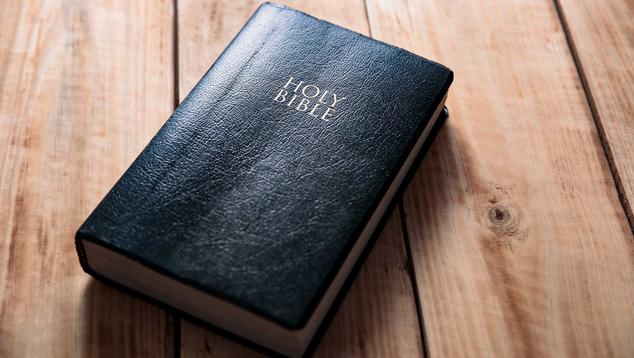WASHINGTON, D.C. -- A record-low 20% of Americans now say the Bible is the literal word of God, down from 24% the last time the question was asked in 2017, and half of what it was at its high points in 1980 and 1984. Meanwhile, a new high of 29% say the Bible is a collection of "fables, legends, history and moral precepts recorded by man." This marks the first time significantly more Americans have viewed the Bible as not divinely inspired than as the literal word of God. The largest percentage, 49%, choose the middle alternative, roughly in line with where it has been in previous years.
Interpretation of the Bible, the holy Scripture of the Christian religion, has varied widely across time and across religious traditions. Gallup has been asking Americans specifically about their views on a literal interpretation of the Bible since 1976, with the latest update coming in Gallup's May Values and Beliefs survey.
The shift in attitudes about the Bible is not an isolated phenomenon. It comes even as a number of indicators show a decline in overall religiosity in the U.S. adult population. These measures include declines in formal identification with a religion, self-reported membership in a church, self-reported religious service attendance, personal importance of religion, and a decline in belief in God. Thus, it is not surprising to find that views on the nature of the Bible have shifted in a less religious direction as well.
The accompanying graph displays the recent trend in the percentage of Americans who choose a biblical literalist interpretation and the percentage who say religion is very important in their lives. These attitudes are closely related (the statistical correlation is .86) and underscore the conclusion that trends in Americans' attitudes about most aspects of religion tend to cluster together.
Protestants Most Likely to View Bible as Literally True
Gallup's biblical literacy question is asked of the entire U.S. adult population. This includes people who identify with religions outside of the Christian tradition -- about 9% of adult Americans in Gallup's latest estimates. Plus, the sample includes those who do not have any specific religious identity at all, almost all of whom do not believe that the Bible is literally true.
The accompanying table displays the views of Americans who identify as Christians and those who do not. The differences are in the expected direction, although the underlying pattern of responses remains similar to that of the general population. The majority of Christians (58%) say the Bible is the inspired word of God but not everything in it is to be taken literally, while 25% say it should be interpreted literally and 16% say it is an ancient book of fables.
More granularly, 30% of Protestants say that the Bible is literally true, compared with 15% of Catholics. Almost two-thirds of Catholics choose the alternative that the Bible is the inspired word of God, but every word should not be taken literally.
As was the case in 2017, belief in a literal Bible is highest among those who are more religious and among those with less formal education. Americans who identify as evangelical or born again are much more likely than others to view the Bible as literally true, although even among this group, the percentage believing in a literal Bible is well less than 50%.
Bottom Line
The issue of how to interpret the Bible has been a subject of debate since the first words of what became the Old Testament were written down centuries before the birth of Christ. In more recent years, various religious leaders and religious entities have staked out positions on the Bible that they claim define truth and that, in turn, have become an integral part of their religious positioning. The most prominent of these positions is the belief that the Bible is inerrant and must be viewed as literally true, a position adopted as part of the evangelical movement in this country over the past centuries and by a number of Protestant denominations.
At this point, a declining proportion of the overall American population -- now 20% -- believes the Bible is literally true, word for word. About half believe that the Bible is the inspired word of God, but not everything in it should be taken literally, while almost three in 10 say the Bible is an ancient book of fables and history. Belief in a literal Bible is declining, part of a general pattern of declining religiosity among the adult American population.
Americans' interpretations of the Bible are important, because the Bible is often used as the basis for policy positions on moral and values issues, including such things as abortion and gay and lesbian relations. Some more conservative Protestant groups use a literal interpretation of passages from the New Testament as the basis for their belief that women should not be in positions of religious leadership in churches. Gallup's data show that the use of a literal interpretation of the Bible as the basis or justification for social policy positions will likely resonate only with a declining minority of the overall U.S. population.
To stay up to date with the latest Gallup News insights and updates, follow us on Twitter.
Learn more about how the Gallup Poll Social Series works.
View complete question responses and trends (PDF download).




